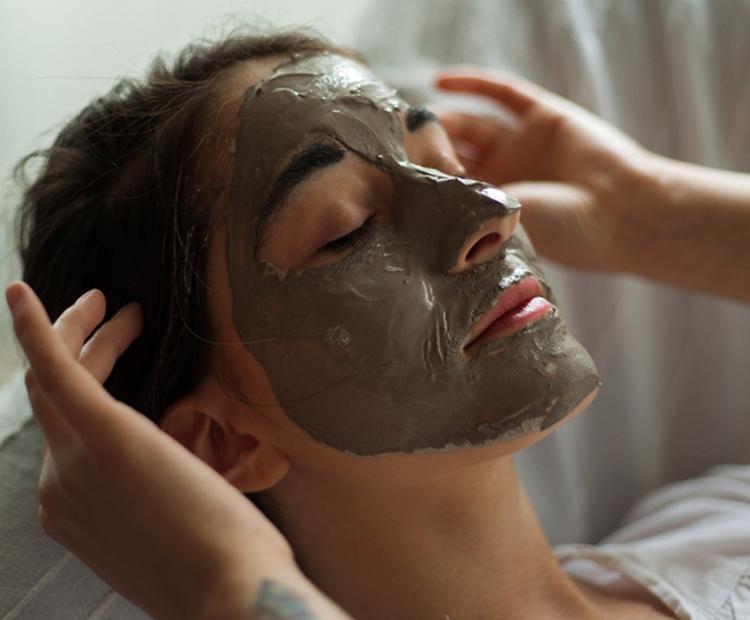How to Give Yourself a Facial, According to a Master Esthetician

While not quite the same as putting your face in the hands of a talented esthetician, giving yourself a facial can do wonders for your mood (and leave you glowing for your next video chat). We asked Olga Lorencin, founder of the Olga Lorencin Skin Care clinic in Beverly Hills and her skin care line of the same name, for her best tips on how to approximate a spa-worthy treatment at home.
Make it a special event.
No offense to your everyday cleanser and moisturizer, but this is the moment to spend some quality time with your top-shelf skin care. “A facial should be different than your regular daily routine,” Lorencin says. “If it’s just a mask, that’s not a facial.”
To see similar benefits as you’d get with a professional treatment, your facial should include each of these steps:
- Cleanse
- Exfoliate, preferably with a peel
- Mask
- Treat (this is when you’ll apply your serum, moisturizer and eye cream)
Customize your recipe.
While the basic steps of your facial will be the same no matter your skin type, you can (and should) tailor each of those steps to your skin’s needs.
Try a creamy cleanser for dry skin, or a foaming formula for oily or combination skin.
If your skin is congested, choose a peel with glycolic or salicylic acid to help clear pores during your exfoliation step. If your skin is on the drier side, “look for a peel with a milder acid (such as lactic, succinic or malic acid) that can turn over the skin in a gentle way,” Lorencin says.
You can even mix and match masks by applying a pore-purifying clay mask to your T-zone and a hydrating mask to thirstier areas of your face.
Meet your skin where it is right now.
While choosing products for your skin type is important, don’t neglect to assess your complexion’s current state. Factors like the season, your exposure to sun and, yes, stress can all cause your skin to play against type.
“If you’re stressed out, your skin may behave in an unusual way,” Lorencin says. If you’re experiencing breakouts even though your skin is usually dry, try swapping in a stronger peel or a mask with acne-fighting ingredients. If you’re seeing dry patches even though your skin is typically balanced, try a more hydrating moisturizer than you’d normally use.
Make the most of what you have on hand.
It’s okay if your bathroom shelves aren’t stocked with a spa-worthy selection of skin care products—you can improvise. Lorencin recommends cocktailing your favorite formulas to give your skin what it’s currently craving most.
For example, you can add a few drops of oil (she likes marula and rosehip oils) to your favorite mask to boost its skin-softening benefits. Another trick: Mix a drop or two of vitamin C serum with your favorite eye cream and use as an eye mask for 15 minutes. “It’s an instant brightener for your eye area,” Lorencin says. (Just be careful not to apply products not made for the eye area on your lids—stick to the skin around your orbital bone.)
Should you need more guidance on how to keep your skin happy at home, you can always turn to a pro. Many facialists are offering remote consultations right now, so you can get product recommendations and tips personalized to you. Not only will you be helping your skin, you’ll be supporting your esthetician until you can see her again.
